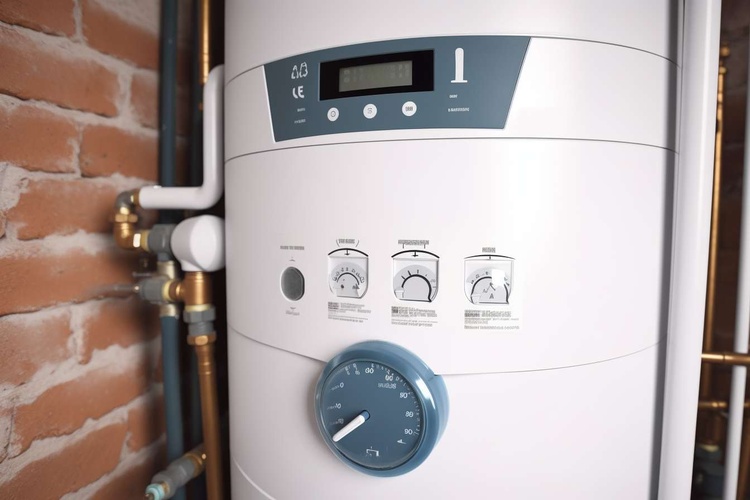How to Accurately Estimate Canadian Home Value 2025 Using Online Tools and Experts
Wondering what your Canadian home is worth in 2025? This article explains practical ways to estimate value by combining online AVMs, comparative market analyses from brokers, and certified appraisals, helping you make informed decisions for selling, refinancing, or planning investments confidently.

Using Online Valuation Platforms for Quick Home Value Estimates
In 2025, digital tools have become a popular first step for homeowners looking to quickly gauge their property’s worth. Online platforms utilize Automated Valuation Models (AVMs) that apply algorithms to analyze recent sale prices, property features, and neighborhood trends. By entering details like your postal code or address, you can receive instant home value estimates along with reports on comparable sales and tax assessments.
Popular online valuation tools in Canada include widely accessible property websites that aggregate market data to provide comprehensive snapshots of home values. These tools:
- Provide immediate, no-cost approximate estimates
- Incorporate recent sales data and regional market trends
- Offer user-friendly reports highlighting tax assessments and neighborhood metrics
However, these estimates usually depend on publicly available data and may not reflect unique property features like recent renovations or custom upgrades. Therefore, they are best used as a starting point rather than a definitive valuation.
Understanding the Difference Between Market Value and Municipal Assessments
A crucial distinction to grasp is between your home’s market value and its municipal property assessment:
- Market Value reflects the likely sale price of your home under normal conditions. It considers current market demand, property condition, location, and economic environment.
- Municipal Assessment is primarily used to calculate property taxes and is updated roughly every three years. It is based on broader geographic data and property categories and often lags behind real-time market fluctuations.
Relying solely on municipal assessments to gauge your home’s current worth can lead to misestimations, as these assessments do not always account for recent market trends or individual property specifics.
Combining Multiple Methods for a More Precise Estimation
For a well-rounded view of your home’s value, combining different methods is recommended:
- Online Tools: Offer fast and general initial estimates
- Municipal Tax Assessments: Provide official valuations for tax purposes
- Comparative Market Analysis (CMA): Conducted by licensed real estate brokers to analyze real sale prices of similar homes in your area, reflecting actual market conditions more accurately
- Professional Appraisals: Performed by certified appraisers through detailed inspections that assess a property’s unique features, structural integrity, and local sales data
By integrating these sources, homeowners can counterbalance the limitations of each and approach a more trustworthy estimation.
Leveraging Comparative Market Analysis (CMA) by Real Estate Professionals
Real estate brokers frequently use CMAs to deliver personalized home value insights. This approach examines recent transactions for similar properties—same neighborhood, size, features—to determine a realistic price range. Unlike generic online calculators, CMAs are informed by actual sale prices, giving a clearer picture of your market standing.
Engaging a real estate professional not only refines your property’s valuation but also provides context on current market conditions, seasonality effects, and buyer demand, which automated tools cannot fully capture.
The Role of Professional Appraisals for Comprehensive Valuations
When accuracy and legal defensibility are paramount—such as during refinancing, estate planning, or legal disputes—professional appraisals stand as the gold standard. Certified appraisers:
- Conduct thorough property inspections covering structural and mechanical elements
- Consider any unique or recent improvements
- Analyze comparable market data carefully
- Provide detailed written reports accepted by mortgage lenders and courts
While appraisals usually require a time investment and a fee, their precision and official recognition justify their role in complex or high-stakes scenarios.
Accounting for Local Market Dynamics and Property-Specific Features
Home value is shaped by nuanced factors beyond simple metrics:
- Local Economy: Employment growth, infrastructure projects, and community amenities influence desirability
- Neighborhood Traits: Quality of schools, transit access, parks, and safety impact buyer interest
- Property Features: Renovations (kitchens, bathrooms), energy efficiency upgrades, landscaping, or architectural uniqueness can add premium value
- Condition and Maintenance: Well-kept homes fetch better prices than those needing repairs
Being aware of these influences helps set realistic expectations and guides investment in home improvements that yield the most value.
Monitoring Market Conditions and Seasonal Trends
In 2025, Canadian real estate continues to be affected by factors such as:
- Interest rate fluctuations influencing buyer affordability
- Supply and demand imbalances varying among locales
- Seasonal patterns where spring and summer see higher activity and potentially stronger prices
Keeping abreast of these dynamics can help homeowners better time valuations or sales efforts, avoiding common pitfalls like overpricing or undervaluing.
Avoiding Common Pitfalls for Accurate Valuation
Some common mistakes to avoid during home valuation include:
- Overreliance on a single valuation method, especially automated tools without cross-validation
- Ignoring unique property attributes or recent renovations when estimating value
- Confusing municipal assessments with market worth
- Setting unrealistic price expectations that delay sale or cause financial loss
Professional advice and multiple data sources reduce these risks and provide a more objective perspective.
Enhancing Property Value Before Valuation
Simple, targeted upgrades can positively influence your home’s perceived and actual market value:
- Renovating kitchens or bathrooms
- Repairing roofs or systems critical to functionality
- Staging the home to improve presentation and appeal
- Decluttering and repainting to create fresh, inviting spaces
Investing in improvements strategically helps maximize appraisal outcomes and buyer interest.
Utilizing AI-Powered Tools Enhanced by Expert Support
In 2025, advanced AI-powered home value estimators analyze real-time market data and property specifics to provide more precise online valuations. Combining these tools with consultations from local real estate experts creates a powerful approach to understanding your home’s worth, offering actionable insights tailored to your neighborhood and property segment.
Estimating your home’s value in Canada in 2025 is a multifaceted process requiring a blend of technology, market knowledge, and professional expertise. Using online tools provides accessible initial data, while broker-led CMAs and certified appraisals bring detailed accuracy necessary for critical decisions. By staying informed about local market trends and factoring in your home’s unique features, you can confidently assess your property’s worth and make well-grounded real estate decisions.
Disclaimer
Prices and availability discussed in this article may vary by region, dealer, and current market conditions. Readers should verify details with local real estate professionals and appraisers before making financial decisions.
Sources
- https://www.centris.ca/en/blog/finance/how-to-estimate-the-market-value-of-your-home
- https://property.ca/home-value-estimator




